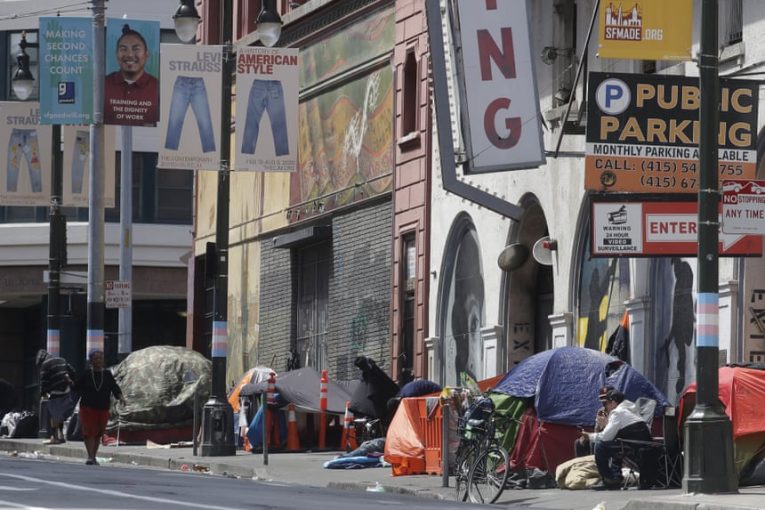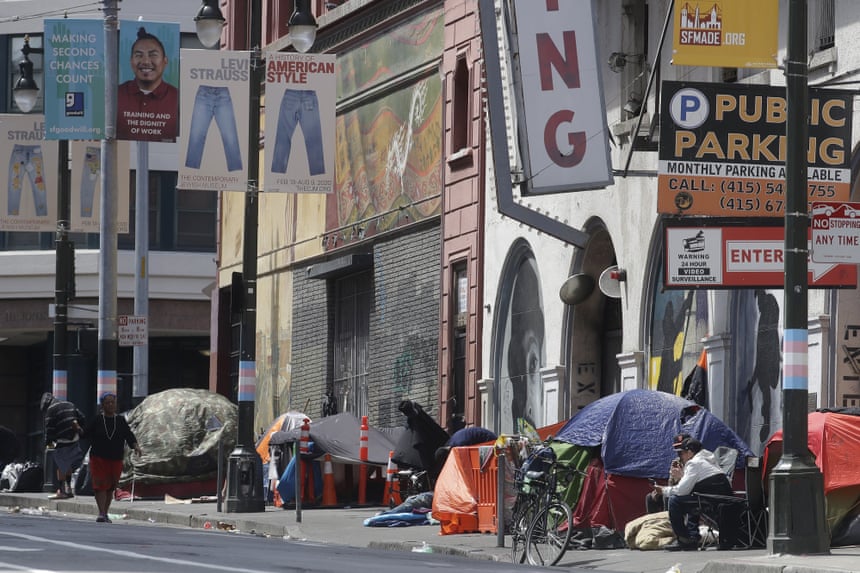

By David M. Greenwald
Executive Editor
This week newly-appointed San Francisco District Attorney Brooke Jenkins announced that her office was rescinding plea offers to at least 30 people facing misdemeanor drug charges. It is part of her strategy of cracking down on drug dealing in places like the Tenderloin.
The DA’s office announced, “The new policy will also consider adding charging enhancements for drug dealing within 1,000 feet of a school and the office will potentially seek pre-trial detention of fentanyl dealers in extreme cases.”
Jenkins was critical of the policies of the new administration, but largely her policies turn things back to the days of the war on drugs—a war that most people believe was a failure.
This week, the Vanguard spoke to Los Angeles DA George Gascón. Facing recall himself, Gascón was DA in San Francisco and before that he was police chief.
“I was a very traditional police officer, I believed in high levels of incarceration,” he explained.
One of the points he made in our interview was that the Tenderloin has always been a problem and is in need of another approach. This has been a problem in San Francisco for decades.
“The difference is now in the last ten years, San Francisco has become more and more affluent and there is very limited real estate,” he explained. The  result is that a lot of people have begun to buy properties in the Tenderloin. This is a process of gentrification. “A new group of people has come into the Tenderloin and they are shocked by the sense of lawlessness.”
result is that a lot of people have begun to buy properties in the Tenderloin. This is a process of gentrification. “A new group of people has come into the Tenderloin and they are shocked by the sense of lawlessness.”
He explained, “What people who have been in San Francisco for a long time forget is that this has been this way for generations and we have tried to arrest our way out of that—with complete failure.”
He went to San Francisco as the chief of police, recruited by then-Mayor Gavin Newsom.
“The first thing that I did—even though I was already a very progressive chief, I started making a lot of arrests for drugs in the Tenderloin and (then DA) Kamala Harris was supporting me, we were cycling a lot of people. We filled up the jail and we never lowered the consumption of drugs in the Tenderloin because we arrested one dealer and another guy came in.”
Later on he noted that a Trump administration US Attorney declared he was going to clear out the Tenderloin as well. They did a bunch of buy-bust operations, but it didn’t make a dent in the drug market.
“The new DA says they will start arresting people there, she will end up in the same place,” Gascón said. “You know the reason why, because until you attend to the social issues and the lack of housing and the lack of treatment, you can arrest people today and they will be cycling in and out. You can arrest drug dealers and there will be another group of young kids who will come in the next day to sell drugs because the demand is high and the amount of drugs is very high.”
He argued, “It’s foolish to think that you can clear out the Tenderloin by arresting your way out of there.”
This is exactly what I pointed out earlier this week. You cannot arrest your way and prosecute your way out of this problem. As much as Gascón gets criticized, he saw the dynamic in San Francisco from a lot of different perspectives and it always ended in the same way—failure.
We didn’t get into this, but arresting drug dealers not only doesn’t decrease drugs and cycles people through the system, it’s actually dangerous because it destabilizes the market. So when those kids rise up to fill the vacuum led by the arrests, there is often violence as existing drug dealing areas are disrupted and dealers fight to attempt to establish their territory.
One of the things that triggered the violence in the crack wars in the 1980s was law enforcement policies that focused on low- and mid-level drug dealers that led to turf battles.
So what Mayor London Breed and DA Brooke Jenkins are doing is attempting to replicated past policies that did not work. As long there is demand for drugs, you will find a ready supplier. Most of the so-called drug dealers they are going to end up arresting are the people on the streets, who are basically users attempting to sell drugs to support their own habit.
Such policies also exacerbate racial inequities.
“The District Attorney’s newly announced policies around drug cases are exactly the type of regressive and carceral practices that have exacerbated the public health crisis of substance abuse, and have only fueled the mass incarceration of impoverished people and disproportionately harmed BIPOC communities for decades,” elected Public Defender Mano Raju pushed back in a statement.
Data has shown that the whites are actually more likely than people of color to use and sell drugs. However, by a 6 to 1 margin, most people arrested and prosecuted for drug possession and sales are in fact people of color.
The war on drugs, focusing on low-income areas like the Tenderloin, drives that inequity in the system.
At the end of the day, no enforcement efforts are going to succeed so long as you have concentrated poverty, lack of jobs, education and lack of mental health services.

